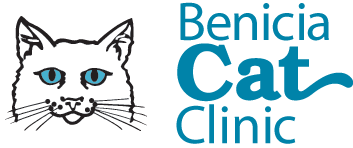Educational Articles
-
Phytonadione (brand names: Mephyton®, Phytomenadione®, Aqua-Mephyton®, K-Caps®, Konakion®, Hemophyt®) is given by mouth and is used on and off label to treat vitamin K1 deficiencies in a variety of animal species, usually due to toxicities. Give as directed by your veterinarian. Side effects are uncommon. Do not use in pets that are allergic to it unless the benefits outweigh the risks. If a negative reaction occurs, please call your veterinary office.
-
Phytosphingosine topical (brand names Douxo®, SkinGuard®) is an anti-inflammatory agent, with antibacterial and antifungal properties. It is used in cats and dogs to help relieve itching in certain skin conditions and help restore the skin barrier. Phytosphingosine topical may be part of a combination product.
-
Pilocarpine is used off-label and given by mouth in food to treat neurogenic keratoconjunctivitis sicca, and used topically in the eye to diagnose cranial nerve III problems. Common side effects include irritation of the eye, and more severe side effects include vomiting, diarrhea, increased salivation and urination, and coughing. Do not use in pets that are allergic to it or that have secondary glaucoma.
-
Pimobendan is a medication given by mouth as a tablet or liquid, used to treat congestive heart failure in dogs. Its use in cats is off label. The most common side effects include decreased appetite and diarrhea.
-
Polyethylene glycol is an off-label laxative used to treat constipation and empty the colon in preparation for procedures such as colonoscopy. The most common side effects are diarrhea, flatulence, and abdominal cramping. Do not use it in pets that are allergic to it or in pets with an intestinal blockage/obstruction.
-
Polymyxin B/miconazole/prednisolone otic (brand name Surolan), is a combination antibacterial (polymyxin B), antifungal (miconazole), and anti-inflammatory steroid (prednisolone) ear drop medication. It is used to treat ear infections in cats and dogs. It is used “off label” or “extra-label” in species other than cats and dogs and to treat conditions other than ear infections. Polymyxin B/miconazole/prednisolone otic comes in an otic suspension form.
-
Polysulfated glycosaminoglycan is an injectable disease-modifying osteoarthritis drug (DMOAD) used to treat non-infectious and traumatic arthritis in dogs. It is also used off-label in cats and small mammals. If administering this medication at home, follow your veterinarian’s instructions and dispose of the needle and syringe appropriately. Side effects are rare when given according to label recommendations and at prescribed intervals. Do not use this medication in pets with a known hypersensitivity to it, in pets with known or suspected bleeding disorders or immune-mediated arthritis, or in pets with severe kidney or liver disorders.
-
Ponazuril is given by mouth and is used on and off label to treat protozoal parasites in a variety of animal species. Side effects are uncommon but may include soft stools. Do not use in pets that are allergic to it. Ponazuril should be used cautiously in pregnant or lactating pets, and dogs with/susceptible to dry eye (keratoconjunctivitis sicca/KCS).
-
Potassium salts are given by mouth or an injection and are used on and off label to treat low blood potassium levels. Common side effects include nausea or discomfort. Do not use in pets that have high potassium levels, urination problems, tissue damage, uncontrolled Addison’s disease, gastrointestinal movement problems, or dehydration. If a negative reaction occurs, please call your veterinary office.
-
Povidone iodine topical (brand names Vetadine®, Poviderm®, Povidine®, others) is a topical antiseptic used on the skin prior to surgery and in first aid treatments for cats and dogs. It has been used in aquatic species and reptiles to treat fungal infections and wounds. Povidone iodine topical comes in liquid solution, gel, ointment, scrub, shampoo, and spray forms.

